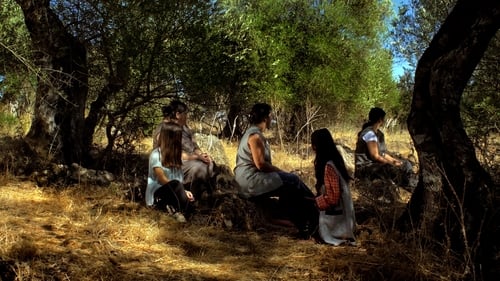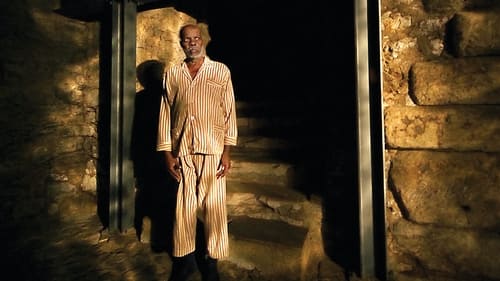
Editor
Vitalina aterriza en Lisboa tres días después del funeral de su marido Joaquim. Ha sido campesina durante toda su vida en Cabo Verde y llevaba esperando ese billete de avión más de 25 años para reunirse con él. En el barrio nadie la conoce, nadie la reconforta, los vecinos desconfían. Pasa afligida los días y las noches como una pesadilla, encerrada en la casa de Joaquim. Allí descubre su vida secreta, las cenizas de su relación y la pobreza de un sueño del que solo quedan los cimientos.

Editor

Assistant Director
After the Carnation Revolution the peasants in the Alentejo region occupied the huge proprieties where they were once submitted to the power of their masters. The protagonists of this film, resistants of this struggle, tell their story to the youngsters of today, in their own words.

Editor
Resistiendo con fiereza en el barrio lisboeta de Fontainhas, donde lleva más de dos décadas filmando, y flanqueado por Ventura –el caboverdiano de triste figura de Juventud en marcha– Pedro Costa regresa, estableciendo un pasadizo secreto entre la Revolución de los Claveles de 1974 y la actualidad en Lisboa. Mientras los jóvenes toman las calles, la gente de Fontainhas busca a Ventura, perdido en el bosque, en un film de misterioso claroscuro como el de su mente deteriorada, perdida en un sueño febril tras una vida de trabajo duro y pobreza.

Editor
La ciudad portuguesa de Guimarães fue, durante el año 2012, Capital Europea del año. El filme Centro Histórico es la combinación del trabajo cuatro cineastas sobre cuatro distintas historias que tiene lugar allí. El primer episodio, titulado El tabernero, está dirigido por Aki Kaurismäki y tiene como protagonista a un hombre solitario, que ve pasar la vida observando los distintos acontecimientos, pero sin experimentar nada de primera mano. El segundo episodio tiene como nombre Dulce exorcista, su director es Pedro Costa e indaga en el pasado colonial.
Finalmente, el último episodio del filme, El conquistador conquistado, tiene como director a Manoel de Oliveira, que hace una sátira de los turistas que toman fotografías sin parar del centro de Guimarães.

Post Production Supervisor
Estado de Excepção is a documentary about CITAC (Coimbra Theater Initiation Circle), a university theater group, revealing history since it was constituted in 1956 until the aftermath of the 1974 revolution. It is the history of the theater group university and, through it, the history of theater in Portugal, revealing two remarkable decades of the History of Portugal. Through the Academy of Coimbra, the documentary reproduces student life, the position of women in society, and the change in mentalities of being and being in the world. It reproduces the existing censorship and the fight against the dictatorship, the resistance to an exhausted regime, as well as the emerging contradictions of the democratic revolution. CITAC has a heritage of 50 years of experience in Coimbra. It carries with it the possibility of the theatrical and civic formation of thinking bodies, constituting a proper ball of a possible model, generation by generation, between studies, theater, and social drama.

Camera Operator
Created on the initiative of the architect Nuno Portas as Secretary of State for Housing and Urban Development of the First Provisional Government, the Local Ambulatory Support Service (SAAL) was a housing assistance program promoted by Resident Associations. The Portuguese Architecture of 25th of April is SAAL - an unparalleled movement in the history of architecture thinking, which served as an example and discussion for many other projects at an international level.

Editor
Created on the initiative of the architect Nuno Portas as Secretary of State for Housing and Urban Development of the First Provisional Government, the Local Ambulatory Support Service (SAAL) was a housing assistance program promoted by Resident Associations. The Portuguese Architecture of 25th of April is SAAL - an unparalleled movement in the history of architecture thinking, which served as an example and discussion for many other projects at an international level.

Director
Created on the initiative of the architect Nuno Portas as Secretary of State for Housing and Urban Development of the First Provisional Government, the Local Ambulatory Support Service (SAAL) was a housing assistance program promoted by Resident Associations. The Portuguese Architecture of 25th of April is SAAL - an unparalleled movement in the history of architecture thinking, which served as an example and discussion for many other projects at an international level.

Editor
Short documentary about football (soccer) supporters in Portugal

Cinematography
Short documentary about football (soccer) supporters in Portugal







